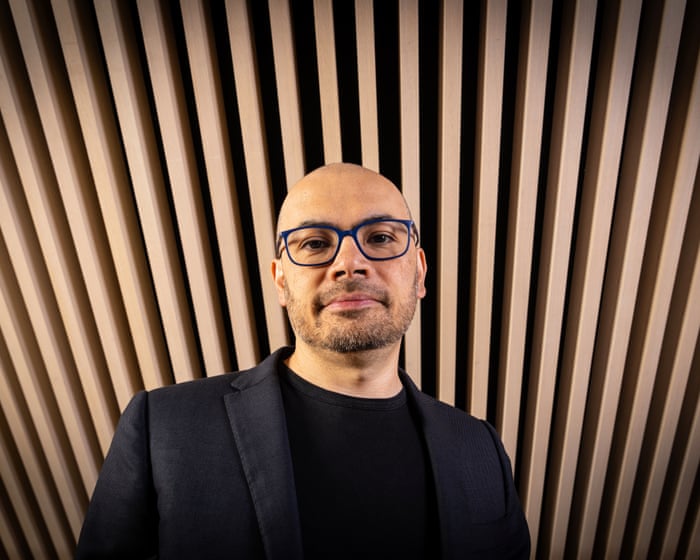When Fargo was first announced as a TV miniseries in 2013, the idea seemed almost blasphemous. The 1996 neo-noir film, starring Frances McDormand as a small-town Minnesota police chief, was a unique masterpiece that had won two Oscars. Many feared the Coen brothers’ distinctive style would be lost in translation to television.
Noah Hawley, the screenwriter tasked with the adaptation, initially agreed. “It seemed like such a terrible idea,” he admits during a video call from his Long Island getaway. “Which is exactly why I liked it. The risk was huge, but so was the potential reward.”
Had his version of Fargo tarnished the original, Hawley jokes, he would have been “burned at the stake.” Instead, he crafted a fresh story—starring Billy Bob Thornton and Martin Freeman—that captured the Coens’ dark humor and small-town chaos without directly remaking the film. The gamble paid off: Fargo won three Emmys in 2014, including Outstanding Limited Series, and has since thrived as an anthology, with Hawley reinventing the premise for four more star-studded seasons.
Now, Hawley is tackling an even bigger challenge: Alien: Earth, a prequel series to Ridley Scott’s iconic 1979 sci-fi horror. While the Alien franchise has spawned sequels, crossovers, and spin-offs, this marks the xenomorph’s first foray into television. “It might be the best monster ever created for film,” Hawley says. But adapting it for TV required a different approach.
Unlike last year’s Alien: Romulus, a back-to-basics slasher that revisited Scott’s original, Hawley’s series demands deeper storytelling. “A movie is a two-hour survival tale where the monsters can just be monsters,” he explains. “But in a 10-, 30-, or even 50-hour series, they need purpose. You can’t kill everyone off, so the story has to evolve around them.”
With Fargo and Legion—his surreal, critically acclaimed take on the X-Men universe—Hawley has helped redefine what TV adaptations can achieve. “The question is always: Why are we doing this?” he says. “If the answer isn’t something beyond money, you should stop.” Today, franchise extensions like HBO’s The Penguin or Andor aim for prestige, not just profit.
Hawley is technically on vacation when we speak—his family has escaped the Texas heat for New York—but he’s happy to discuss his latest project. The idea for Alien: Earth began in 2018, after Legion’s success, when FX asked if he had a take on the franchise. “If you ask me, I’m going to have an idea,” he laughs.
The Alien timeline has grown messy over 45 years, from Prometheus to Alien vs. Predator. Hawley’s solution? Focus on Earth, just before the events of the original film. The result blends eerie fantasy with sci-fi dread, featuring a sprawling cast—including Babou Ceesay as a stoic security officer and Timothy Olyphant as a synthetic human.
“It’s complex and layered,” Hawley says, “but I want you to finish each episode thinking: Hell yeah, let’s go!“The story is set in 2120—a few years before Sigourney Weaver and her crew of space truckers have their infamous alien encounter—where Earth has been divided among powerful tech corporations. Weyland-Yutani, the franchise’s notorious villainous company, is part of the mix, but a rival called Prodigy has secretly mastered transhumanism, transferring human consciousness into synthetic bodies. However, only young minds are adaptable enough for the process, leading to terminally ill children being reborn as superhuman yet emotionally immature “hybrids.”
“No one embodies humanity more than a child,” says showrunner Noah Hawley. “They’re terrible liars, can’t hide their fear, and slowly learn cynicism. That fascinated me.”
When a massive research vessel carrying dangerous alien creatures crashes into a high-tech city in Thailand, the hybrids are sent on a rescue mission. “We’re fast, strong, and unbreakable,” says Wendy, the lead hybrid, played by Sydney Chandler with youthful energy. The situation escalates into a corporate battle amid citywide chaos.
Creating new alien creatures that could stand alongside the iconic xenomorph was intimidating for Hawley. He wanted to recapture the thrill of watching Alien for the first time. “They don’t have to dominate the story,” he explains. “They just need to create that sense of unpredictability. Introducing these new creatures keeps you guessing.”
Compared to the emotional intensity of Fargo and Legion, Alien: Earth embraces a bolder, more energetic tone. Hawley drew inspiration from classic Black Sabbath, aiming for an exhilarating experience. “I wanted this show to be wildly entertaining from start to finish,” he says. “It’s layered and complex, but also a thrill ride—like hard rock with driving guitars. I want viewers to finish each episode pumped up.”
Hawley grew up in New York City’s West Village during the 70s and 80s, surrounded by artists in what was then a far less affluent neighborhood. After studying political science, he worked as a paralegal while playing in rock bands and writing fiction. At 27, he moved to San Francisco and published his first novel. Though he secured a two-book deal, his second novel struggled when his editor left and the publisher lost interest. “I was in a desperate place,” he admits.Helping a friend refine a screenplay led to him pitching and selling his own projects: “Within six months, I went from someone who wasn’t sure how I’d pay the bills to launching a whole new career.”
He has continued writing novels alongside his work as a showrunner—his sixth book, Anthem, was published in 2022—and made his feature directorial debut in 2019 with Lucy in the Sky, a psychological drama about an astronaut, starring Natalie Portman. If his varied projects suggest creative restlessness—he even contributed vocals to Legion’s retro-inspired soundtrack—it’s also been a deliberate effort to diversify. “It’s given me options, which as an artist means having some control over my own path,” he says.
One unexpected early influence was British comedy. After studying theater in London, his father returned with Goon Show records that Hawley and his brother memorized. “I just wore those records out,” he recalls. He also loved listening to NPR’s reruns of the BBC’s 1978 radio sitcom The Hitchhiker’s Guide to the Galaxy and was thrilled to discover The Young Ones at an impressionable age.
That’s why casting Adrian Edmondson as a sinister aide in Alien: Earth felt like a full-circle moment. “I told Adrian there’s a scene in The Young Ones [the episode Flood] that explains everything about me as a storyteller,” he says. “It’s when his character, Vyvyan, walks into a closet and ends up in Narnia. I was a teenager when I saw it, and it blew my mind—magical realism in a comedy about roommates!”
What was it like meeting his childhood hero? “I’ve found that many comedic actors are different off-screen. Adrian is very calm, you know,” Hawley laughs. “He’s much more like his character in our show than Vyvyan.”
Alien: Earth premieres on Disney+ in the UK on 13 August.
Correction: An earlier version of this article stated that the BBC radio sitcom The Hitchhiker’s Guide to the Galaxy was an adaptation of the novels. In fact, the radio show came first.



